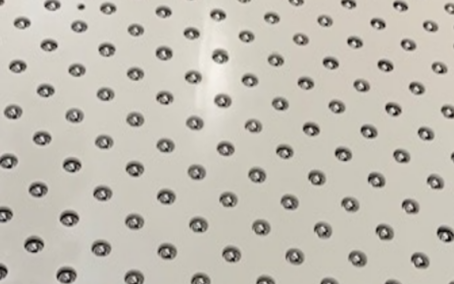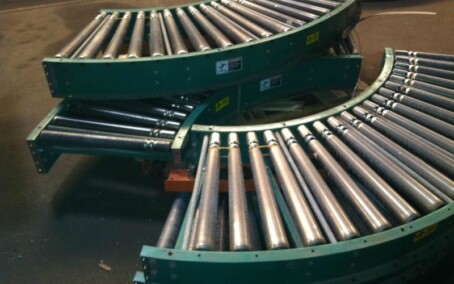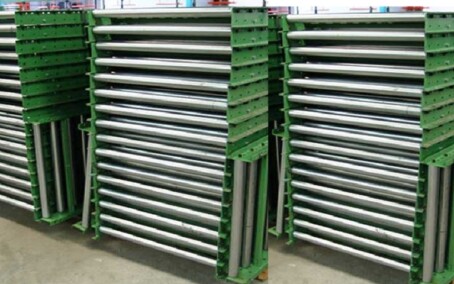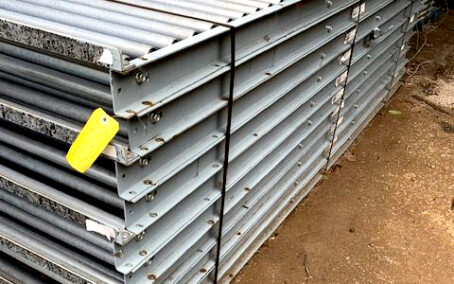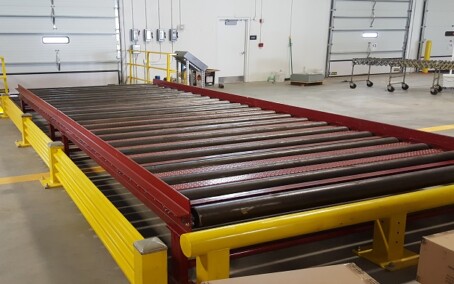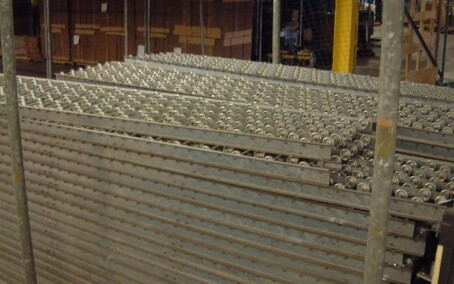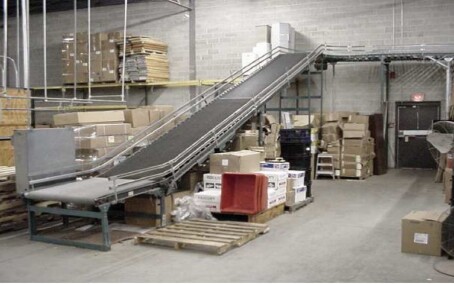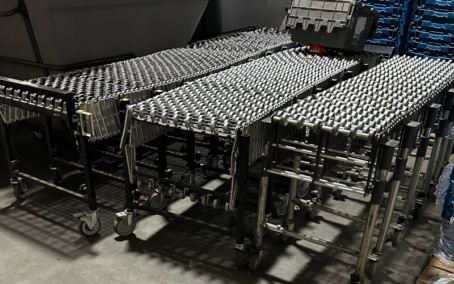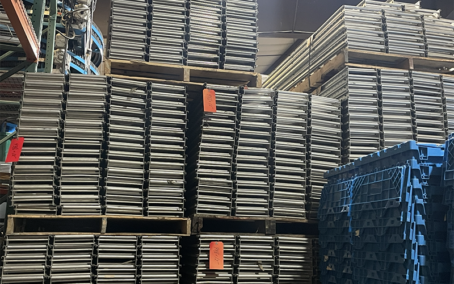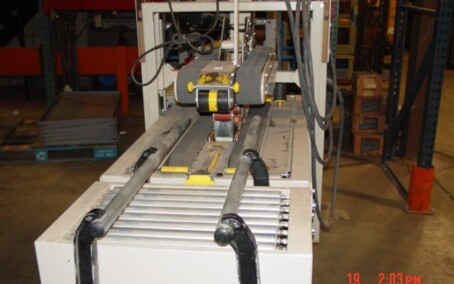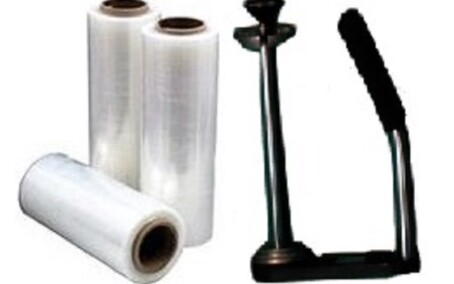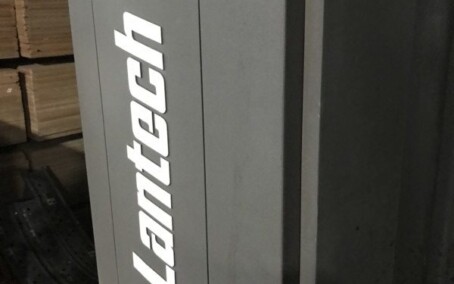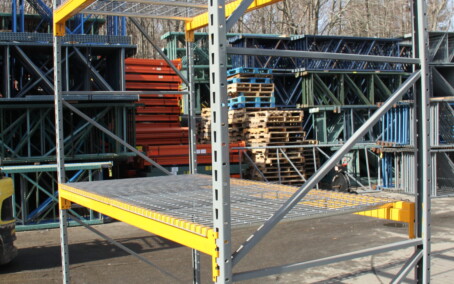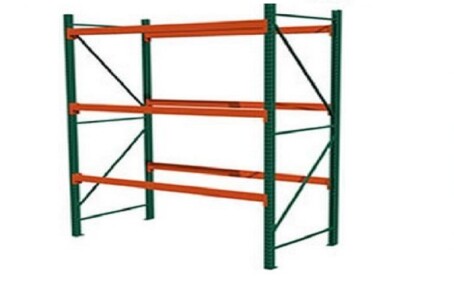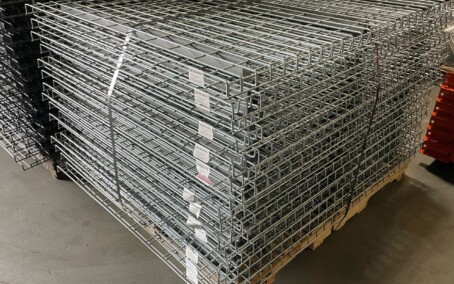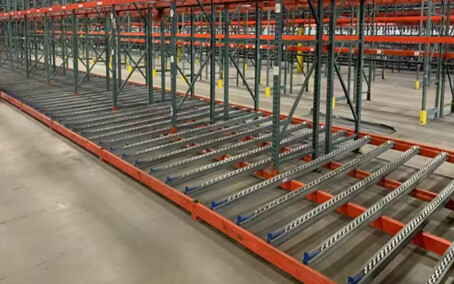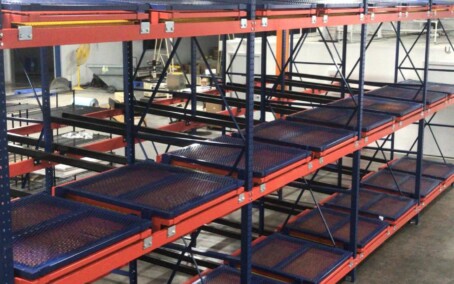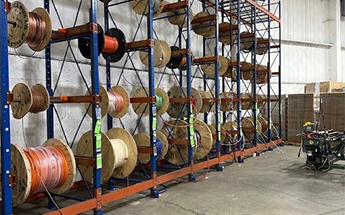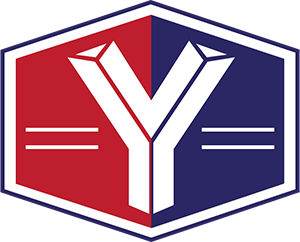Conveyor Curves – Enhance Material Flow with Flexible Design
Conveyor curves are an essential component in material handling systems, allowing businesses to move products smoothly and efficiently through curved paths or around obstacles. These versatile conveyors are designed to adapt to a wide variety of workflows, making them perfect for environments like warehouses, distribution centers, and manufacturing plants. With a conveyor curve, you can change the direction of material flow, maximize available space, and improve overall efficiency. At Yankee Supply, we offer a range of high-quality conveyor curves that can be easily integrated into your existing conveyor system, providing flexibility and reliability.
Improve Operational Efficiency with Conveyor Curves
One of the main benefits of incorporating conveyor curves into your system is the ability to change the direction of material flow without compromising speed or efficiency. Unlike straight conveyors, which are limited to linear movement, conveyor curves allow you to direct products around corners, bends, or other obstacles in your facility. This is especially important in environments where space is limited or where a more complex workflow is required.
Conveyor curves are often used in high-speed sorting applications, packaging lines, or areas where items need to be directed to different processing or storage areas. The smooth transition from one section of the conveyor system to another helps maintain continuous material flow, preventing bottlenecks and improving throughput. This allows businesses to move more goods with fewer resources, boosting productivity and reducing operational costs.
Versatility and Customization for Your Needs
Conveyor curves are highly customizable and can be tailored to meet the specific needs of your operation. Available in various radii, angles, and designs, these systems can be adapted to fit a variety of layouts. Whether you need a gentle curve to navigate around obstacles or a sharp turn to fit your space constraints, conveyor curves can be configured to suit your requirements.
There are different types of conveyor curves, such as roller curves, belt curves, and skatewheel curves. Each type is designed to handle different materials and load capacities. For example, roller curves are ideal for handling heavy loads, while skatewheel curves are commonly used for lighter, smaller items. The modular design of these systems allows you to easily incorporate them into your existing conveyor line, providing a seamless transition from straight conveyors to curved sections.
Durable Construction for Long-Lasting Performance
Conveyor curves are built to last, with durable materials and construction that can withstand the demands of daily operations. These components are typically made from high-quality steel, aluminum, or other strong materials that ensure a long lifespan and reliable performance. Whether you're transporting light boxes, packages, or heavy-duty materials, a well-built conveyor curve can handle a wide range of loads without compromising speed or efficiency.
In addition to their durable construction, conveyor curves are designed to minimize wear and tear on the system. The smooth transition provided by these components reduces friction and prevents damage to both the products being transported and the conveyor system itself. This helps to extend the life of your equipment and reduce maintenance costs over time.
Low Maintenance and Easy Integration
Like other conveyor components, conveyor curves are designed to be low-maintenance and easy to operate. Routine upkeep typically involves ensuring the curves are clean and free from debris, and inspecting the rollers or wheels for any signs of wear. Because these systems have fewer moving parts than more complex conveyor systems, the chances of malfunctions are reduced, making them a reliable solution for continuous material handling.
Integrating a conveyor curve into your existing system is also simple. With their modular design, these components can be easily connected to other conveyor sections, allowing you to reconfigure or expand your system as needed. Whether you're designing a new system or upgrading an existing one, conveyor curves offer a flexible and efficient way to enhance your material flow.
Conclusion
Conveyor curves are an essential element of any efficient material handling system. Their ability to change the direction of product flow without slowing down operations allows businesses to streamline their processes, maximize space, and improve productivity. With their customizable design, durability, and ease of integration, conveyor curves provide long-lasting performance and value. At Yankee Supply, we offer a variety of high-quality conveyor curves to meet the unique needs of your business. Browse our selection today to find the perfect solution for your material handling system.


